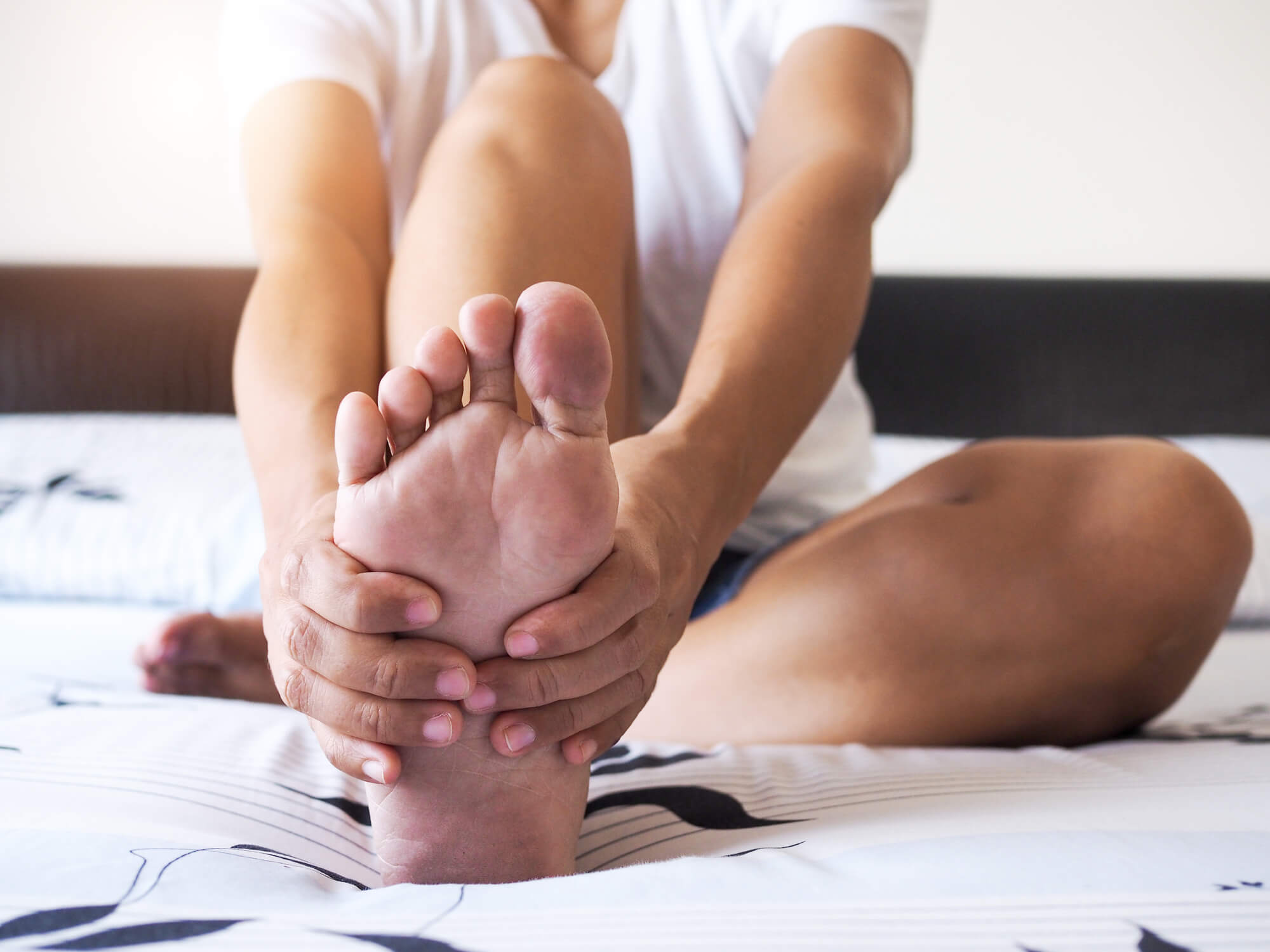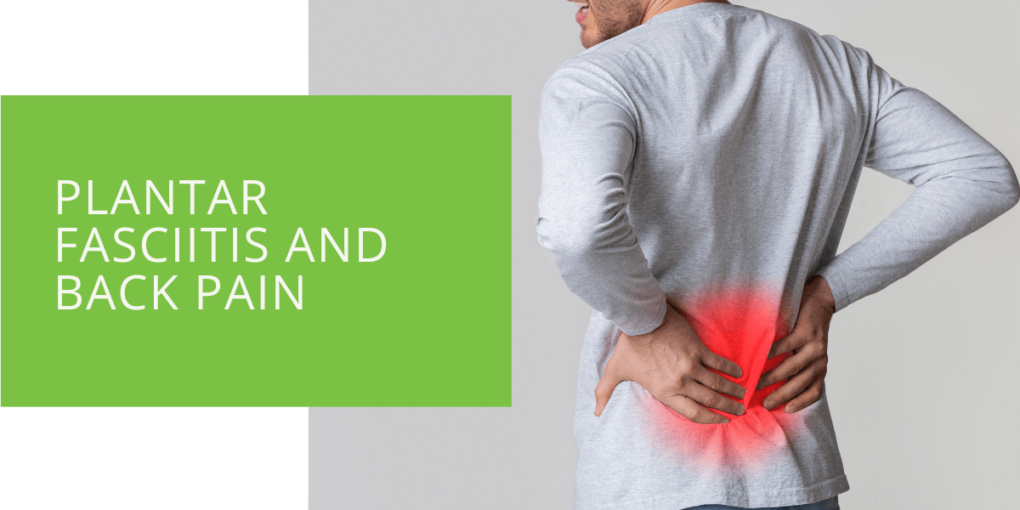Plantar Fasciitis and Back Pain
Plantar fasciitis is a common foot condition characterized by pain and inflammation in the plantar fascia, a band of tissue that supports the arch of the foot. While it primarily affects the foot, plantar fasciitis can also unexpectedly impact the lower back, leading to back pain. This article will delve into the relationship between plantar fasciitis and back pain, understanding the biomechanical factors, nerve irritation, and muscle imbalances involved. Moreover, we will explore effective treatment strategies to address both conditions comprehensively.
The Relationship Between Plantar Fasciitis and Back Pain
Biomechanical Factors
The altered foot mechanics resulting from plantar fasciitis can have a cascading effect on body posture and spinal alignment. As the heel and arch are affected, individuals may unknowingly adjust their posture, leading to misalignments in the lower back. These compensatory movements and changes in gait can contribute to back pain and discomfort.
Nerve Irritation and Referral Pain
Plantar fasciitis can irritate the nerves in the foot, including the sciatic nerve, which runs from the lower back down to the foot. This irritation can cause referred pain, where the pain originating from the foot travels along the nerve pathway and is perceived in the lower back. The interconnected network of nerves in the body can amplify pain perception in different areas.
Muscle Imbalance and Compensation
Chronic foot pain and altered foot mechanics associated with plantar fasciitis can lead to muscle imbalances and compensation patterns. When the foot is compromised, the muscles surrounding the affected area may tense up or weaken, causing imbalances and irregularities in movement. These imbalances can extend to the back muscles, resulting in pain and discomfort.

Identifying and Managing Plantar Fasciitis-Related Back Pain
Accurate Diagnosis
A comprehensive and accurate diagnosis is crucial to effectively managing plantar fasciitis-related back pain. Consulting a podiatrist or foot specialist is recommended to evaluate both conditions properly. The diagnostic process may involve a thorough physical examination, review of medical history, and possibly imaging tests to identify any underlying issues contributing to the pain.
Treating Plantar Fasciitis to Alleviate Back Pain
Addressing plantar fasciitis directly is key to reducing associated back pain. Effective treatment strategies for plantar fasciitis include stretching exercises to improve flexibility, wearing appropriate footwear with arch support, and considering custom orthotics to provide additional cushioning and stability. By managing plantar fasciitis, individuals can alleviate strain on the foot and subsequently reduce back pain.
Addressing Back Pain Directly
While focusing on plantar fasciitis is essential, addressing back pain directly is also important. Complementary physical therapy, chiropractic care, and targeted exercises can help alleviate back pain, improve spinal alignment, and strengthen the supporting muscles. Collaborating with healthcare professionals specializing in back pain can provide a holistic approach to managing both conditions.
Preventive Measures and Lifestyle Changes
Preventive measures and lifestyle changes can help reduce the risk of plantar fasciitis and back pain. These measures include maintaining a healthy weight to reduce strain on the feet and back, practicing good posture to promote proper alignment, and engaging in regular exercise to strengthen muscles and improve overall flexibility.

Seeking Professional Guidance
Podiatrist's Role in Managing Plantar Fasciitis and Back Pain
A podiatrist plays a crucial role in managing plantar fasciitis and back pain. With their expertise in foot and ankle conditions, they can provide comprehensive care and guidance throughout the treatment process. Podiatrists can accurately diagnose plantar fasciitis, identify its impact on the lower back, and develop a tailored treatment plan to address both conditions effectively. They may recommend combining physical therapy, orthotics, footwear modifications, and other interventions to alleviate pain and promote optimal foot and back health.
Collaborative Care with Other Healthcare Professionals
Collaboration with other healthcare professionals, such as physical therapists, chiropractors, and orthopedic specialists, is vital for a multidisciplinary approach to managing plantar fasciitis-related back pain. Each specialist brings a unique perspective and expertise, contributing to a comprehensive treatment plan. By working together, they can address the specific needs of the individual and provide holistic care that targets both the foot and back, maximizing the chances of successful outcomes.
Conclusion
The surprising connection between plantar fasciitis and back pain highlights the importance of understanding the intricate relationship between different body parts. Altered foot mechanics, nerve irritation, and muscle imbalances associated with plantar fasciitis can contribute to lower back pain. However, with accurate diagnosis, comprehensive treatment strategies, and preventive measures, individuals can find relief from both plantar fasciitis and back pain.
If you're experiencing symptoms of plantar fasciitis and back pain, seeking professional guidance from a podiatrist or foot specialist is crucial. They will assess your condition, provide an accurate diagnosis, and develop an individualized treatment plan that addresses both issues. Remember, by proactively managing plantar fasciitis and back pain, you can improve your overall quality of life, regain mobility, and enjoy pain-free movement.
FAQ
Can plantar fasciitis cause upper back pain?
Plantar fasciitis primarily affects the foot and does not directly cause upper back pain. However, altered foot mechanics and compensatory movements associated with plantar fasciitis may affect body posture, potentially leading to upper back discomfort. It is recommended to consult with a healthcare professional to determine the specific cause of upper back pain.
Can plantar fasciitis cause lower back pain?
Yes, plantar fasciitis can cause lower back pain indirectly. Altered foot mechanics, compensatory movements, and changes in gait due to plantar fasciitis can affect body posture and spinal alignment. These factors can contribute to lower back pain. Treating plantar fasciitis and addressing any associated muscle imbalances or nerve irritation may help alleviate lower back pain.
Is plantar fasciitis linked to back pain?
Yes, there is a link between plantar fasciitis and back pain. The altered foot mechanics and compensatory movements associated with plantar fasciitis can impact body posture and spinal alignment, potentially leading to back pain. Managing plantar fasciitis effectively and addressing related muscle imbalances or nerve irritation can help alleviate back pain.
Does plantar fasciitis cause back pain?
Plantar fasciitis itself primarily causes foot pain. However, the altered foot mechanics and compensatory movements resulting from plantar fasciitis can indirectly lead to back pain. The connection between plantar fasciitis and back pain lies in the impact on body posture and spinal alignment. By treating plantar fasciitis and addressing associated factors, individuals may experience relief from back pain.

